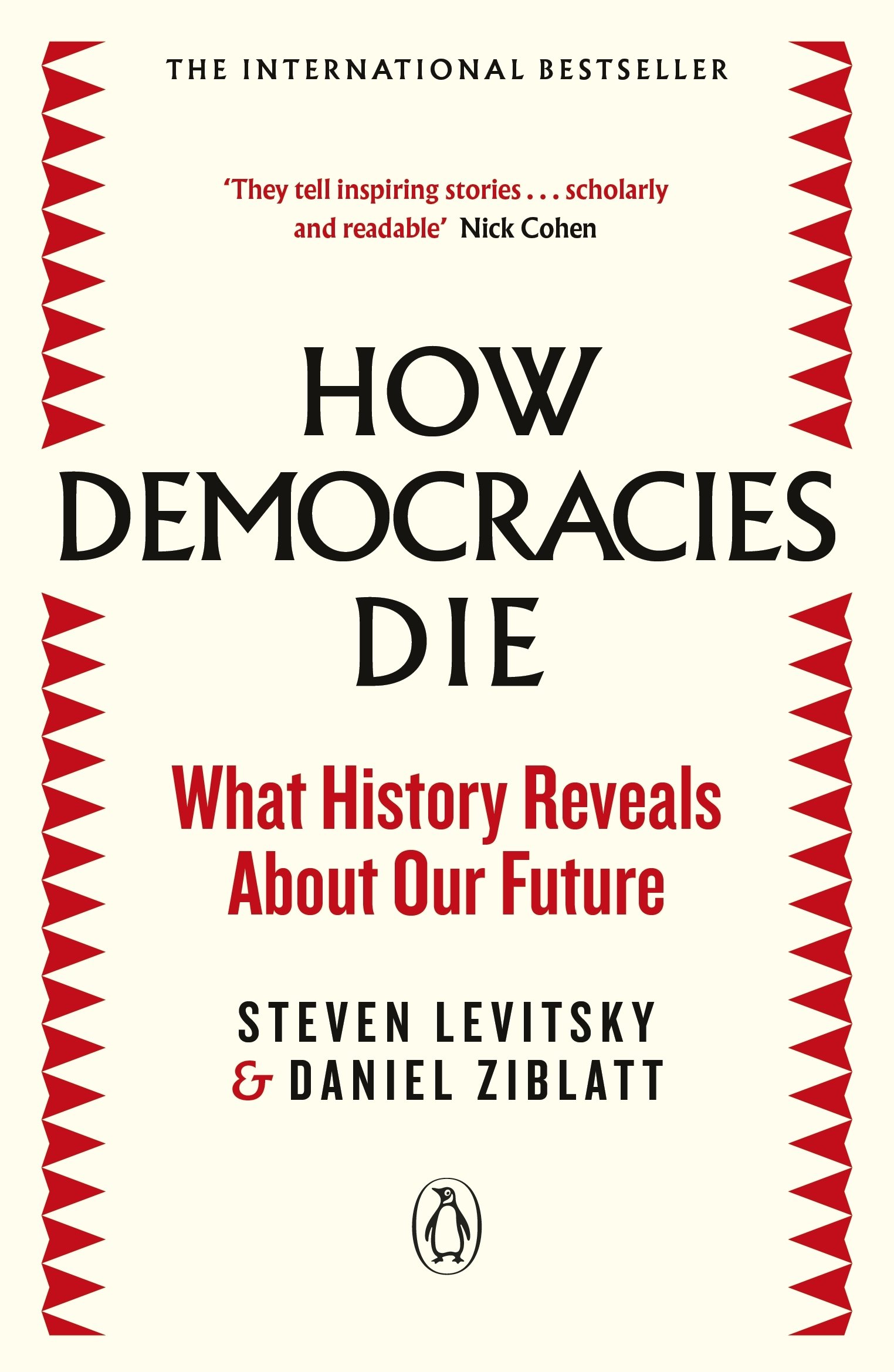How Democracies Die by Steven Levitsky examines the vulnerability of democratic systems to authoritarianism. Levitsky, drawing on historical and contemporary case studies, argues that democracies do not always collapse through violent coups but often erode slowly, through the subversion of democratic norms and institutions. He highlights how leaders can exploit constitutional frameworks, weaken opposition, and concentrate power, leading to a gradual breakdown of democracy. The book warns of the dangers posed by populist movements and authoritarian leaders and provides insight into the factors that contribute to democratic decline. It also offers recommendations for safeguarding democracy in the modern age.
How democracies die
₨1,320₨1,475
How Democracies Die by Steven Levitsky explores the gradual decline of democracies around the world, focusing on the ways authoritarian leaders exploit democratic institutions. Levitsky analyzes the signs of democratic erosion and offers insights into preserving democratic values and systems.
Related products
Terrorism:Theirs and Ours
₨2,099Terrorism: Theirs and Ours by Eqbal Ahmad critically examines the origins and politics of terrorism. It challenges mainstream narratives, exploring the role of global powers, colonial history, and socio-political contexts in perpetuating violence and misunderstanding about terrorism.
₨2,500The Revenge of Geography
₨499The Revenge of Geography by Robert D. Kaplan examines how geography shapes global politics. Kaplan argues that nations’ geographical features and locations heavily influence their political decisions, strategies, and conflicts, offering a unique lens on world history and power dynamics.
₨699Ten Arguments for Deleting Your Social Media Accounts Right Now
₨1,750Jaron Lanier makes a compelling case against social media’s impact on society, highlighting issues like addiction, manipulation, and privacy violations. He offers ten thought-provoking reasons to reconsider our online presence and reclaim autonomy in an increasingly connected world.
₨1,945Money,Greed and God
₨999Jay W. Richards debunks myths about capitalism and explores its compatibility with Christian values. Money, Greed, and God advocates ethical capitalism as a force for good, offering a balanced perspective on faith, economics, and societal progress.
₨1,500My Feudal Lord
₨1,499My Feudal Lord by Tehmina Durrani is a gripping memoir exposing the abuse and oppression endured by the author in her marriage to a powerful Pakistani politician. It highlights the struggles of women in patriarchal and feudal societies.
₨1,699Blood and Oil: Mohammed bin Salman’s Ruthless Quest for Global Power
₨2,965Blood and Oil by Bradley Hope and Justin Scheck explores the rise of Saudi Arabia’s Crown Prince Mohammed bin Salman. The book delves into his political maneuvers, controversial actions, and ambitions to reshape both Saudi Arabia and the world.
₨3,295The Return of Taliban
₨849The Return of the Taliban by Hassan Abbas offers a comprehensive overview of the Taliban’s resurgence in Afghanistan. It explores the factors behind their comeback, the international response, and the implications for regional and global security.
₨1,299Erdogan’s Empire
₨499Cagaptay’s book provides an in-depth analysis of President Recep Tayyip Erdogan’s rise to power, his consolidation of authority, and the impact on Turkey’s domestic and foreign policies. It examines how Erdogan’s leadership has reshaped the country’s identity and global positioning.
₨899









